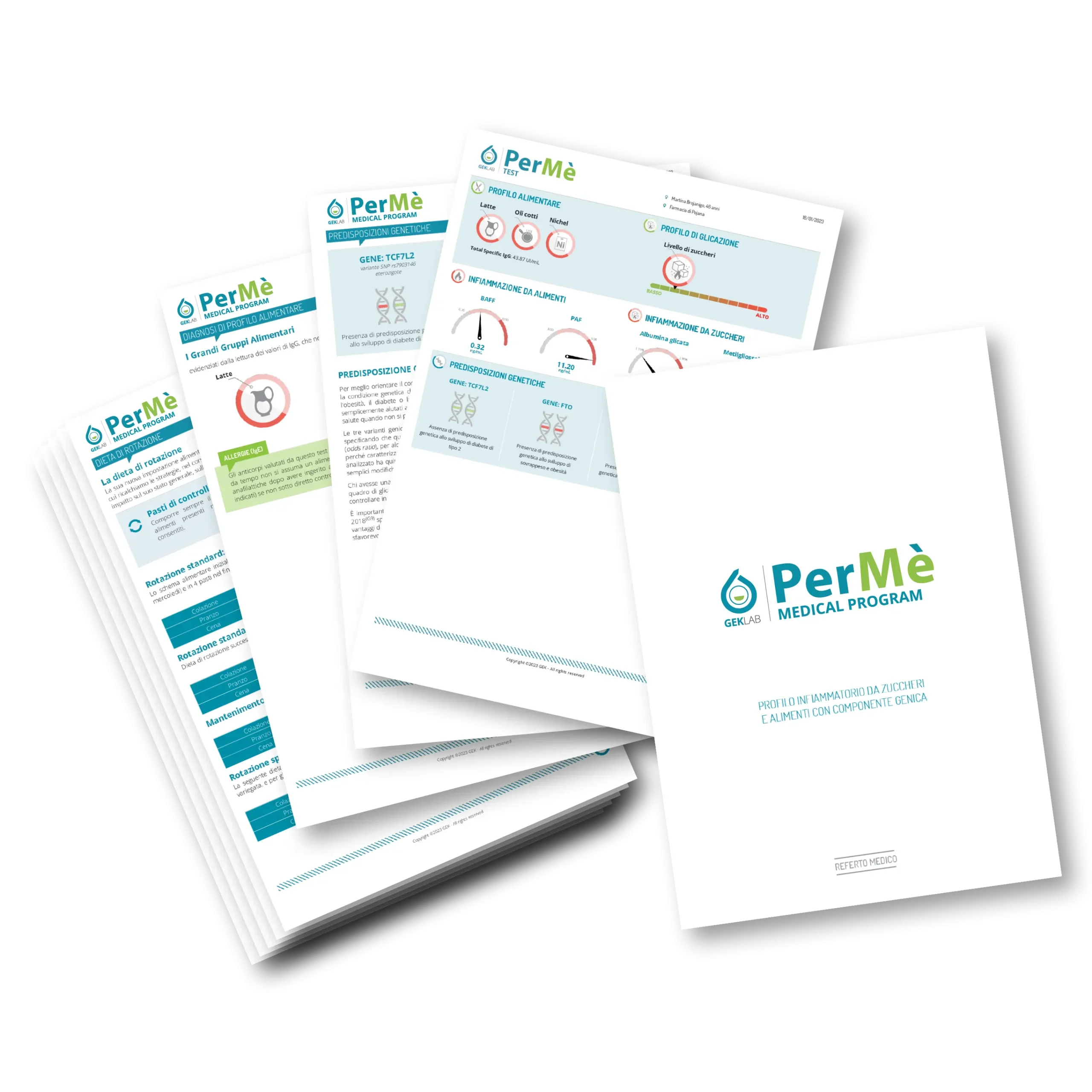
In recent years, scientific research has emphasized the importance of nutrition in preventing and treating cancer. In particular, the effect of sugars on the development and progression of oncological diseases has gained attention.
Sugars, through phenomena such as glycation and glycosylation, can promote the creation of a “protective shield” around cancer cells, unfortunately making them more resistant to both the immune system and traditional oncological treatments.
A targeted nutritional approach, which includes glycation control, short fasting, and the reduction of glycemic spikes, could, therefore, improve the effectiveness of cancer treatments and more comprehensively support cancer patients.
Sugars, through phenomena such as glycation and glycosylation, can promote the formation of a “protective shield” around cancer cells, unfortunately making them more resistant to both the immune system and traditional cancer treatments.
The Influence of Sugars on Cancer and the “Sugar Shield”
Excessive blood sugar plays a crucial role in the development and progression of cancer, primarily through the processes of glycation and glycosylation. Glycation, which is a chemical reaction not mediated by enzymes, occurs when circulating sugars bind to proteins, enzymes, RNA, DNA, and lipids, altering their structure. This phenomenon, along with glycosylation, which is enzyme-mediated, contributes to the formation of a “sugar shield” around cancer cells. This shield makes malignant cells less vulnerable to immune system attacks and reduces the effectiveness of cancer therapies, such as chemotherapy, which struggles to penetrate the protective barrier.
Excess sugars promote the growth and survival of cancer cells, as these cells exploit glucose to fuel their metabolism, making them increasingly resistant to treatments. Targeted interventions to reduce glycation, such as controlling blood sugar levels, could therefore restore cancer cells’ sensitivity to chemotherapy and other treatments, thereby improving the effectiveness of therapies. Recent evidence suggests that reducing excess sugars and inhibiting glycation could serve as a complementary therapeutic strategy, increasing tumor vulnerability and enhancing the response to cancer treatments..
Recent studies, such as those published in Science Translational Medicine (2021) and Science Signaling (2022), confirm that excess sugars facilitate the formation of this “sugar shield” and can reduce the effectiveness of many anti-cancer therapies. These studies highlight the importance of monitoring and modulating sugar intake in the diet to improve the response to cancer treatments.
Short Fasting as an Aid to Chemotherapy
Short-term fasting (such as intermittent fasting to some extent) is a dietary approach involving alternating food abstinence cycles and regular eating. The most common method includes fasting periods that typically range from a few hours to a full day. There are different types of short-term fasting, but the most common involves at least 16 hours of fasting, typically by skipping dinner, followed by a complete breakfast the next morning. This routine should be repeated for two or, at most, three days per week.
During short-term fasting periods, the body undergoes a series of beneficial metabolic changes, including a significant reduction in blood sugar levels and the production of ketones. Ketones are molecules produced when the body uses fats as an energy source instead of carbohydrates, and they have anti-inflammatory effects that may be beneficial in cancer treatment.
Furthermore, short-term fasting helps reduce blood sugar spikes, decreasing inflammation and the production of pro-inflammatory molecules, which are factors that could fuel tumor growth. Intermittent fasting also improves insulin sensitivity, promoting a more balanced metabolism and reducing the excess glucose available to cancer cells.
Recent studies, such as the one published in Biomedicines (2021), have shown that fasting can reduce the side effects of chemotherapy, such as kidney toxicity, and enhance the effectiveness of drugs. For example, some studies have indicated that reducing caloric intake and practicing fasting for 2-3 days before or after chemotherapy can improve patients’ response to treatments while minimizing damage to healthy tissues. Integrating this practice with chemotherapy could therefore represent a promising nutritional strategy to optimize therapeutic outcomes.
Prevention: A Nutritional Approach to Reducing Cancer Risk
In addition to its therapeutic effects, a balanced diet plays a fundamental role in cancer prevention. Recently updated oncology prevention guidelines recommend strict control of metabolic factors, particularly to maintain a healthy blood sugar balance and reduce chronic inflammation.
Here are some practical tips to reduce the risk of developing cancer:
- Monitor weight and its fluctuations: It is essential to maintain a healthy body weight and reduce excess adipose tissue, which can contribute to inflammation and increased insulin levels, both risk factors for many types of cancer.
- Regular physical exercise: It is recommended to engage in at least 150–300 minutes of moderate physical activity per week or 75–150 minutes of intense exercise.
- Adopt healthy eating habits: It is important to consume a diet rich in vegetables, fruits, whole grains, and legumes while limiting the intake of red meat, processed foods, sugary drinks, and alcohol.
Track inflammation and glycation: Specific products such as the Glyco Medical Program or the PerMè Medical Program allow for assessing inflammation and glycation levels, providing an additional opportunity to personalize diet and treatment.
Knowing Your Glycation and Inflammation Levels
A fundamental aspect of the nutritional approach in oncology is the ability to track glycation and inflammation levels. Personalized products for measuring glycation substances and inflammatory markers provide a valuable tool for defining tailored nutritional plans. In various oncology centers, the value of an integrated approach that combines nutrition and cancer therapy is increasingly recognized to optimize outcomes and support the body’s response during treatments.
Conclusions
The role of nutrition in the fight against cancer is becoming increasingly evident, with studies showing that targeted sugar control, glycation management, and the integration of practices such as short-term and intermittent fasting can have positive effects on cancer treatment. The ability to reduce inflammation and improve sugar metabolism provides important support for traditional oncology therapies, such as chemotherapy.
Furthermore, by tracking glycation and inflammation levels, it is possible to further personalize nutrition and optimize treatment effectiveness. The combination of nutrition, prevention, and oncology therapies represents a promising frontier for improving patients’ quality of life and enhancing the available therapeutic options.
GEK Lab and other specialized laboratories offer advanced products for measuring glycation and inflammation parameters, providing valuable tools for a personalized approach that helps patients maximize the benefits of oncology treatments and improve their overall health.
Edited by the Scientific Editorial Team



